The central focus of George Sanchez and Maria Jose Contreras’ workshops (in October and November respectively) was the body: the body that “keeps the score” of its habits, desires, and accumulated traumas, whether or not that score ever makes its way into verbal expression or outward acknowledgement. The goal of these workshops was to explicitly offer that acknowledgement: to make the score visible, legible, and communal, rather than burying it in the rush of “going back to normal life” after a year of COVID lockdown, precarity, illness, and death. + Read More
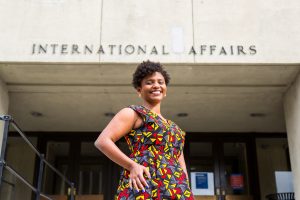
Reciprocity, Black Solidarity, and Reconnection: A Conversation on Amefricanidade and Quilombo with Professor Camila Daniel and Runnie Exuma
This is an excerpt from a July 29, 2022 interview between Columbia University student Runnie Exuma, CSSD staff member Tomoki Fukui, and Professor Camila Daniel around topics of anticolonial epistemology, Black feminist practices, quilombo, Amefricanidade, dance, and Black solidarity. It has been edited and condensed for brevity. You can view the full interview here. + Read More
Prison Education and Teaching Incarcerated Students
Over the 2021-2022 academic year, the Prison Education and Social Justice Curricula working group—comprised of Columbia University faculty, graduate student workers, members of the Justice-in-Education (JIE) initiative, and local prison education workers—has been meeting regularly to develop courses to be taught in prison contexts and to prepare for the challenges involved in this new kind of teaching.
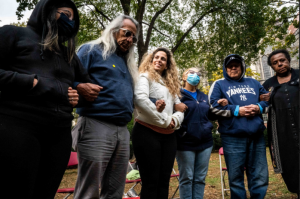
Representing Covid through Boal’s Image-Theater
Images of “Covid:”
#1. A person lies on a bench with both hands resting on their stomach and eyes half-closed. Another person stands with one of their hands placed on the forehead of the person lying down. The person lying down does not see the person who has a hand on their forehead. At a certain distance, two people stand behind some chairs holding hands and looking in the direction of the person lying down.
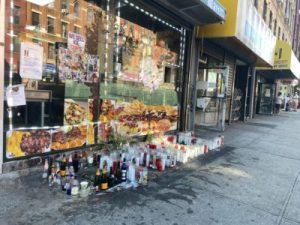
An email after a visit to La Morada
This post contains an email that I shared with Diana Taylor, Marianne Hirsch, and Lee Xie after visiting La Morada in the Bronx with Aya Labanieh on September 7th, 2021.

Mapping Out
November 20, 2021 Group Workshop with Maria
We as a collective attempted to connect through body movement. Like molecules we bumped and diverged, spreading in all directions at different speeds. After a while we were asked to trace ourselves to the past. So we made body maps. Laid them out flat and traced the outline of our present selves while filling the bodies with loss, fears, memories, thoughts and even hope.
Music and the (re)making of territory: A commentary on the Silvio Luiz de Almeida and MC Carol Panel
What is the role of music in (re)definitions of space? What is the role of humor?
In the fourth event of the “Reconstructing History” series, CSSD Geographies of Injustice working group members joined singer and activist MC Carol and professor and attorney Silvio Luiz de Almeida for a conversation on the meanings of territory, experience, theory, and humor in musical production. The working group, led by Professors Ana Paulina Lee and Anupama Rao, recently launched a podcast, titled Music and Migration in Rio and Mumbai’s Favelas. It can be accessed via Rádio Batuta or Spotify.
Women Mobilizing Memory in Harlem
In September 2014, vendors hawked mussels and shoppers slipped into H&M while Women Mobilizing Memory moved with a different purpose through Istanbul’s Istiklal Street. Our CSSD working group was embarking on a “gendered memory walk,” an activist-scholar intervention coined by our counterparts in Turkey. Ayşe Gül Altınay, anthropology professor and Director of SU Gender at Sabancı University, and several graduate fellows, including Bürge Abiral, Armanc Yildiz, and Dilara Çalışkan, organized the walk as part of the Curious Steps Program. Their goal was to highlight memory sites central to political movements towards feminist and queer liberation that risked being subsumed in history and the changing face of the city. + Read More
On the Frontlines: A Student’s Reflections on Ebola Crisis Oral History Research Trip to Sierra Leone and Liberia
I had the privilege of joining the Center for the Study of Social Difference working group, On the Frontlines: Nursing Leadership in Pandemics on a week long trip to Freetown, Sierra Leone and Monrovia, Liberia in August of 2019. While there, we recorded oral histories of nurses and midwives who were active during the Ebola crisis that afflicted both Sierra Leone and Liberia between 2014 and 2016. These interviews recorded perspectives from nurses working at the level of ministries of health, to those engaged on the front-lines. Nurses interviewed included some who treated the earliest cases, and others who were there as the last patients were discharged from the Ebola treatment centers. Two of the nurses interviewed were themselves survivors of Ebola and everyone the project encountered had a personal story of loss from that time. + Read More
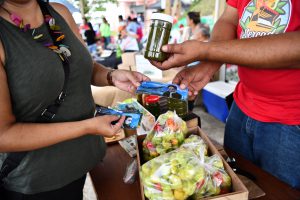
Disrupting Money: Puerto Rican Community Currency Project Makes Its Way to New York for the 2019 Loisaida Festival
Following a successful launch earlier this year, Puerto Rican artists will begin circulating Puerto Rican ‘pesos’ at the Lower Manhattan Festival ahead of one-month residency in the city.

RGFGV Conference Report on “Global Governance of the Intimate”
The project on Religion and the Global Reframing of Gender Violence (RGFGV) convened a major international workshop on September 7-8, 2018. Global Governance of the Intimate was the second in a series of international workshops that opened with workshop in Amman a year earlier, hosted at the Columbia Global Center | Middle East, Amman. A group of twenty-five scholars, journalists, lawyers and activists met for two intensive days of collaborative research sharing and brainstorming at Columbia University in New York City.
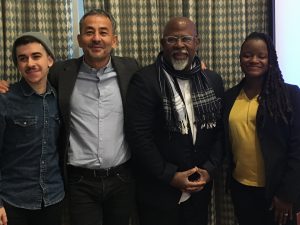
Reframing Transgender Violence: Notes from a Two-Day Workshop
On January 24-25, 2019, the Center for the Study of Social Difference presented its final scheduled public workshop in the first iteration of its Reframing Gendered Violence working group. Reframing Transgender Violence was organized by Nash Professor of Law Kendall Thomas and featured scholars, activists, attorneys, and graduate students working across issues of transgender violence and justice.

The Pedagogy of Dignity: Prison Education, Part 2 Event Recap
On Sunday September 30th 2018, the Center for New Narratives in Philosophy at Columbia University hosted its second Pedagogy of Dignity workshop at Columbia’s Lenfest Center for the Arts, in connection with the Pedagogies of Dignity working group at the Center for the Study of Social Difference. The workshop brought together 40 formerly incarcerated students, academics, prison educators, activists, undergraduates, and postgraduates, to discuss the benefits and challenges of prison education, present our pedagogical ideas, and prepare participants to teach in Brooklyn Metropolitan Detention Center (MDC).

Unpayable Debt: A Student’s Reflections on the Launch of Max Haiven’s Art After Money, Money After Art and Caribbean Debt Syllabus, Second Edition
On October 10, 2018, the Center for the Study of Social Difference working group Unpayable Debt held an event to launch scholar Max Haiven’s book, Art After Money, Money After Art, and the second edition of Caribbean Debt Syllabus, the only digital resource available to study the significant impact of debt in Caribbean’s past and present.

CSSD Working Group Unpayable Debt launch of Caribbean Syllabus: Second Edition and Max Haiven’s “Art After Money, Money After Art”
On October 10, 2018, the working group, Unpayable Debt: Capital, Violence and the New Global Economy, led by professors Frances Negrón-Muntaner and Sarah Muir, hosted a launch event for the Second Edition of the #NoMoreDebt: Caribbean Syllabus. The group also launched the book Art After Money, Money After Art: Creative Strategies Against Financialization by Max Haiven, Canada Research Chair in Culture, Media, and Social Justice at Lakehead University.
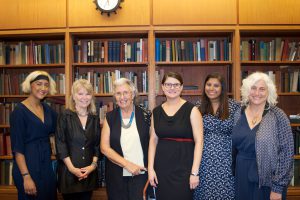
Menstrual Health and Gender Justice Working Group Launches with Expert Panel: Menstruation is Having its Moment – How Can Scholars Engage?
On September 20, 2018, the Center for the Study of Social Difference (CSSD) and the Institute for the Study of Human Rights sponsored the launch of a new CSSD working group: Menstrual Health and Gender Justice. The event featured an expert panel addressing some of the most pressing questions related to menstrual health. + Read More
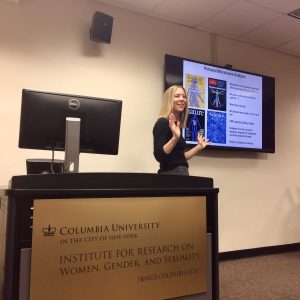
Cinnamon Bloss: “Consumers, Citizens, and Crowds in the Age of Precision Medicine”
Professor Cinnamon Bloss (UC San Diego) gave a fascinating talk for the Precision Medicine: Ethics, Politics and Culture working group at the Center for the Study of Social Difference on February 15, 2018.

Dr. Susan Markens talks about ethics and genetic counseling with the CSSD/PM&S Precision Medicine group
On January 22, 2018, the Precision Medicine: Ethics, Politics, and Culture CSSD/PM&S working group welcomed Dr. Susan Markens (CUNY-Lehman College) for its first talk of the semester, titled The Genomic Revolution, Genetic Counselors, and “Doing Ethics.” Dr. Markens presented her qualitative findings based on her research about the perspectives of genetic counselors towards the increasing availability and use of genetic science and testing. + Read More
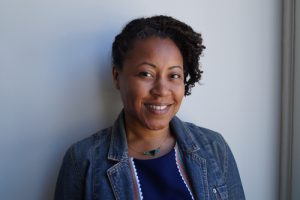
Kadija Ferryman: “Fairness in Precision Medicine”
Kadija Ferryman’s talk on November 30, 2017 for the Precision Medicine: Ethics, Politics, and Culture CSSD working group drew from her post-doctoral project, “Fairness in Precision Medicine,” a study on which she is co-PI with danah boyd at the Data and Society Institute. + Read More

Reframing Gendered Violence presented “Gender and the Technologies of State Violence” in November
On November 16, 2017, the CSSD working group Reframing Gendered Violence presented “Gender and the Technologies of State Violence: Innocence-Disposability-Resilience” in the Case Lounge of Jerome Greene Hall at Columbia Law School, along with the Center for Gender and Sexuality Law.
+ Read More

CSSD Project on Religion and the Global Framing of Gender Violence Convenes Workshop in Amman
A project of Columbia University’s Center for the Study of Social Difference, “Religion and the Global Framing of Gender Violence” (RGFGV), held a two-day workshop in September to explore and debate critical developments in the global framing of gender-based violence. + Read More
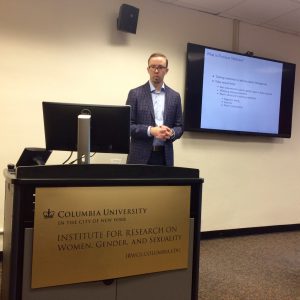
“The Economics of Precision Medicine and Disparities in Health,” a talk by Dr. Kristopher Hult
The second Fall 2017 talk of the CSSD working group Precision Medicine: Ethics, Politics, and Culture (PMEPC) featured Dr. Kristopher Hult. In his presentation, “The Economics of Precision Medicine and Disparities in Health,” Dr. Hult shared his research and outlook on the potential of personalized medicine to increase the health impact of existing treatments, and thereby improve patient outcomes.
+ Read More

A Human Origin Story in the Age of Biotech, Race, and Science: A Talk with Priscilla Wald
Priscilla Wald, Professor of English and Women’s Studies at Duke University, presented her talk “Cells, Genes and Stories: HeLa and the Patenting of Life” as part of the CSSD project Precision Medicine: Ethics, Politics and Culture, followed by a discussion with the Precision Medicine working group in September.
+ Read More
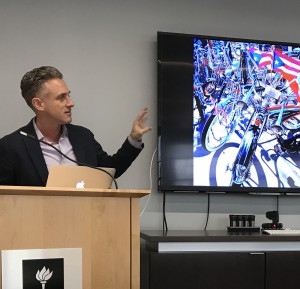
Narratives of Debt Conference Surveys Puerto Rican Debt and Beyond
On April 21st 2017, CSSD’s Unpayable Debt working group and the Oikos working group at New York University’s Institute for Public Knowledge hosted the “Narratives of Debt” conference. + Read More
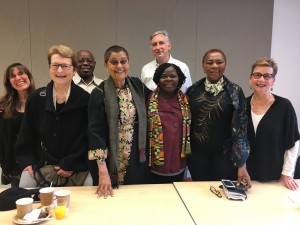
Rural-Urban Interface Working Group Uses Humanities to Analyze Interviews with Migrants in Accra and Nairobi
On April 21st, the Center for the Study of Social Difference sponsored a presentation and discussion of work in progress by the CSSD working group The Rural-Urban Interface: Gender and Poverty in Ghana and Kenya, Statistics and Stories. + Read More

Jacqueline Chin Presents on “Precision Medicine: Privacy & Family Relations”
Dr. Jacqueline Chin, Associate Professor at the Centre for Biomedical Ethics, Yong Loo Lin School of Medicine, Singapore spoke in February on the subject of “Precision Medicine: Privacy & Family Relations” for CSSD’s project on Precision Medicine: Ethics, Politics, and Culture. + Read More
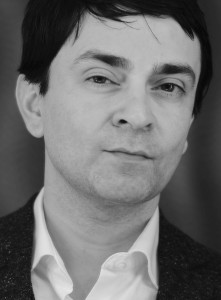
Aditya Bharadwaj Discusses Cultivated Cures: Ethnographic Encounters with Contentious Stem Cell Regenerations in India
In October, the CSSD working group Precision Medicine: Ethics, Politics and Culture hosted Aditya Bharadwaj, Professor of Anthropology and Sociology of Development at the Graduate Institute, Geneva, who presented his work on “Cultivated Cures: Ethnographic Encounters with Contentious Stem Cell Regenerations in India.” + Read More
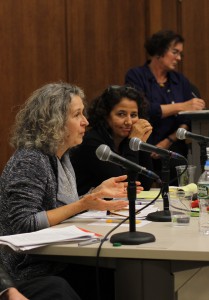
DISCUSSION: Is Gender Violence Governable? A Panel on International Feminist Regulation
“Over the last few decades Violence Against Women (VAW) and, increasingly, Gender Based Violence (GBV), have come to prominence as sites for activism,” explained Lila Abu-Lughod, Joseph L. Buttenwieser Professor of Social Science and Co-Director of the CSSD project on “Religion and the Global Framing of Gender Violence.” + Read More
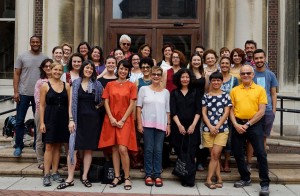
WOMEN MOBILIZING MEMORY IV: A Week of Workshops, Exhibits, and Protest
For its fourth international meeting on “Collaboration and Co-Resistance,” Women Mobilizing Memory gathered in New York in September. + Read More

DISCUSSION: Shoshana Magnet on Feminism, Robots, and Roaches
In early 2015 Shoshana Magnet, associate professor at the Institute of Feminist and Gender Studies at the University of Ottawa, came to speak to CSSD’s working group on Science and Social Difference about her feminist analysis of recent scientific inquiry into mixed societies of robots and insects. + Read More
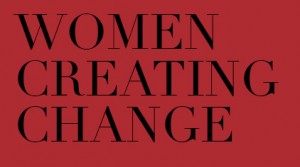
ROUNDTABLE: Women Mobilizing Memory “Keywords”
Vulnerability. Reaction. Privilege. Heritage. Utopia. What associations do these “keywords” evoke? What concepts do they represent? How are these ideas used by scholars, or put into practice by activists? What kinds of work can we do with a keyword, what conversations can keywords unlock? These were some of the questions asked at a recent roundtable discussion by Women Mobilizing Memory, a CSSD working group exploring issues of memory, witnessing, testimony, and trauma from a cross-cultural feminist perspective. + Read More

WOMEN MOBILIZING MEMORY: Effective Activism for Human Rights
CSSD’s Women Mobilizing Memory working group met in late February to discuss, in a comparative perspective, the links between memory and activism and between memory practices and movements promoting human rights. + Read More

CONFERENCE REPORT: 2014 Caribbean Digital Conference
The Digital Black Atlantic Project closed the fall of 2014 with an unprecedented event, its inaugural Caribbean Digital conference. On Decembe
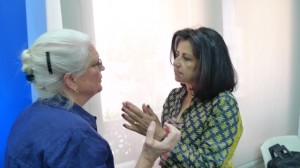
CONFERENCE REPORT: Debating the “Woman Question” in the New Middle East: Women’s Rights, Citizenship, and Social Justice
In light of the recent events across the Arab region, the time is opportune for a careful examination of the new opportunities and challenges facing Arab women. Debating the “Woman Question” in the New Middle East (Columbia Global Center, Amman) brought together scholars, academics, and practitioners to explore three broad themes: Political Economies and Women’s Lives; Political and Legal Strategies for Citizenship and Social Justice; Islamic Feminism and Islamist Governance. Read the full Conference Report here.

WOMEN MOBILIZING MEMORY: Patricia Ariza on Culture as a “form of resistance”
TRANSFORMING TRAUMA WITH THEATRE
“Culture is a form of resistance,” asserted Colombian playwright, director, producer, and actor Patricia Ariza as she met with twelve members of the Center for the Study of Social Difference’s Women Mobilizing Memory working group at the Hemispheric Institute in New York City.

DAY FIVE REPORT: “Women Mobilizing Memory” Workshop in Istanbul, Turkey
During the penultimate day of the week-long Women Mobilizing Memory workshop, a number of new research questions and concerns emerged, including the following: As women (and sometimes men) mobilizing memory, how do we deploy feminist scholarship, and what does feminism mean to each of us across our diverse cultural, linguistic, and educational contexts? + Read More

DAY THREE REPORT: “Women Mobilizing Memory” Workshop in Istanbul, Turkey
The third day of Women Mobilizing Memory was dedicated to three public roundtables with simultaneous translations at Depo: “Creating Alternative Archives,” “Art, Performance and Memory.” and “Gender, Memory, Activism.”

DAY FOUR REPORT: “Women Mobilizing Memory” Workshop in Istanbul, Turkey
The fourth day of Women Mobilizing Memory featured a roundtable discussion moderated by Ayşe Gül Altınay on documentary films about state violence and Kurdish memory. The directors of the films Bûka Baranê (2013, dir Dilek Gökçin) and Dersim’s Lost Girls (2010, dir. Nezahat Gündoğan) also joined the discussion. + Read More

DAY TWO REPORT: “Women Mobilizing Memory” Workshop in Istanbul, Turkey
Media, Memory, Political Efficacy
On Day Two of theWomen Mobilizing Memory workshop, Jean Howard introduced the following keywords for discussion: gender; embodiment; accompaniment (or “walking with”); politics; repair; mobilizing; hope; optimism; and play, or the recovery of joy. + Read More

DAY ONE REPORT: “Women Mobilizing Memory” Workshop in Istanbul, Turkey
Jean Howard, Ayşe Gül Altınay, Milena Grass, and Andrea Crow participated in the opening panel of Women Mobilizing Memory, a working group that explores women’s acts of witness and the gendered forms and consequences of political repression and persecution.
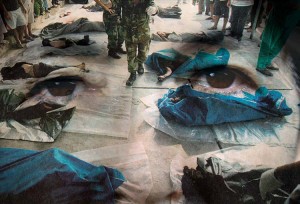
PUBLIC ROUNDTABLES: “Coming to Terms” with Gendered Memories of Genocide, War, and Political Repression,” Istanbul, Turkey
Public Roundtables with Turkish simultaneous translations
September 17, 2014, 1:00-7:00pm
DEPO Gallery, ISTANBUL, TURKEY
Roundtable topics and speakers:
Creating Alternative Archives, with Leyla Neyzi, Özlem Kaya, Susan Meiselas, Silvina der Meguerditchian, and Şemsa Özar
Art, Performance and Memory, with Andreas Huyssen, Alisa Solomon, Carol Becker, Diana Taylor, Maria José Contreras, and Ayşe Öncü
Gender, Memory, Activism, with Marita Sturken, Marianne Hirsch, Nükhet Sirman, Meltem Ahıska, Nancy Kricorian, and Yeşim Arat
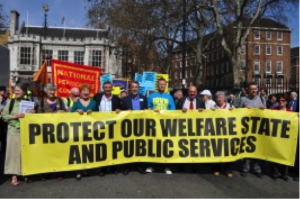
WORKSHOP: Shifting Notions of Social Citizenship: The “Two Wests”
What is the welfare state? What happens when it disintegrates? What is the future of the family in light of its historical transformation?
Scholars and graduate students from research universities in the United States, France, the United Kingdom, Italy, the Netherlands, Denmark, Sweden, and Norway convened to answer these questions during the Shifting Notions of Social Citizenship: The “Two Wests” workshop, held June 11-13, 2014 at the Columbia Global Center | Paris. + Read More
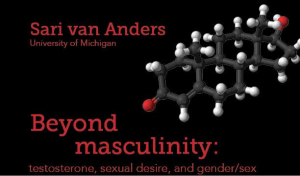
PUBLIC LECTURE: Beyond Masculinity: Testosterone, Sexual Desire, and Gender/Sex
Everyone knows that sexual desire and testosterone are linked because men have higher testosterone, and testosterone is tightly linked to masculinity and sexual desire - right? But what do empirical data actually say? Professor van Anders discussed findings that support decoupling testosterone from masculinity and provide insights into the nuanced ways testosterone and sexual desire are - and are not - linked in humans.

REFLECTIONS: Debating the “Woman Question” in the New Middle East: Women’s Rights, Citizenship, and Social Justice
At first glance, 2014 does not seem like a banner year for women in the Middle East. We heard that ISIS, the Islamic State of Iraq and Syria, was requiring female circumcision around Mosul in Northern Iraq (a claim the group denied). A new law regarding domestic violence in Lebanon failed to criminalize marital rape, apparently thanks to conservative religious opposition.

